San Diego City Council: 1st District
Barbara Bry

Barbara Bry graduated from the University of Pennsylvania with a bachelor’s degree in sociology and later a master’s degree in business administration from the Harvard Business School. In her early twenties, Bry worked as a journalist for the Sacramento Bee and Los Angeles Times. However, she decided to leave the industry and, not too long after, became involved with the CONNECT Program at UCSD: a program started to provide San Diego entrepreneurs and businesses with the resources they need to grow. She served as the first associate director of the program in addition to teaching entrepreneurship. After CONNECT, Bry went on to form several companies and nonprofit organizations, including Run Women Run, a nonprofit that helps women get elected to office; The Voice of San Diego, an investigative, community-funded news organization; and currently Blackbird Ventures, an investment company.
As a former teacher and experienced entrepreneur, Bry understands the needs of her constituents, and students in particular. She’s always said that jobs and the economy are her main priorities, but her overall mission is to address issues that affect the quality of life of San Diegans and students, such as the rising costs of housing, job security and transportation. Although she cannot directly impact how the UC Regents spend their money or the interest rate on student loans, Bry will help students kickstart their careers and set a solid foundation for their futures.
With respect to San Diego, the issues Bry has centered her campaign around include making housing more affordable in San Diego, connecting youth to the growing innovation and technology economy, reducing gun violence and preventing sexual assault.
Ray Ellis
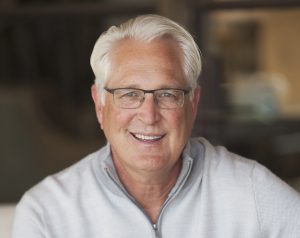
Bry’s opponent Ray Ellis stopped running an active campaign this past August, after the election results of the June primary showed Bry leading by 15 points, with a likelihood of winning by significantly more in the general election. However, his name remains on the ballot and, according to Bry, he can still win the election if enough people vote for him.
Ellis is a small-business owner and community volunteer who has sat on the board of several nonprofit organizations, including Voice for Children, Second Chance and the Equinox Center. He currently sits on San Diego Grantmakers’ Finance Committee, the Del Mar Mesa Community Planning Board and Head Start, and The Parker Foundation.
— Tina Butoiu, Editor-in-Chief
California Assembly: 78th District
Todd Gloria
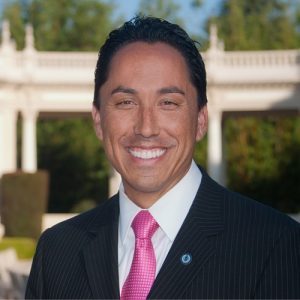
Todd Gloria, the city councilman for San Diego’s District 3 since 2008, has been a constant presence in San Diego politics for the past decade. The San Diego native graduated from University of San Diego in 2000 and started getting involved in city government as a housing commissioner in 2005. Since 2011, he has served as the council’s chair of the Budget and Government Efficiency Committee, where he has helped manage the city’s finances. He also chairs the SANDAG transit committee and is chair pro tempore of the Metropolitan Transit Committee. Most notably, he served as interim mayor of San Diego from 2013 to 2014 after Bob Filner resigned.
Throughout his time in the city council, Gloria has made it a priority to combat homelessness and housing security. He has supported the construction of thousands of affordable housing units and the creation of a permanent, year-round homeless shelter. If elected to the state assembly, Gloria promises to also pay attention to the needs of those in what he calls the “middle band” of people who face housing difficulties — those who are well-off enough not to qualify for subsidies but who still do not have the means to find affordable housing. This is particularly relevant to students at UCSD, who often have difficulty finding off-campus housing in the pricey La Jolla area. Gloria is also upset that the state government eliminated redevelopment agencies in 2011, which he says has hindered local efforts to create affordable housing. He hopes to bring the state back into the affordable housing game to help combat the problem of unsheltered homeless people statewide.
Kevin Melton

Born in Los Angeles in 1964, Kevin Melton began his political career much later in life than his opponent. After graduating from Cal State Dominguez Hills, Melton pursued several career paths in the private sector, working as a salesman at an information systems company, an advertising broker and as an associate publisher for the elderly-targeted publication Senior Life. Following unsuccessful runs for Los Angeles city council in 2003 and 2007, he moved to San Diego in 2008, where he got involved with Kevin Faulconer’s 2013 mayoral campaign as a member of his campaign finance committee. In 2014, he was defeated in the District 78 state assembly race against Toni Atkins, making this his second attempt at the same office. As of 2016, Melton has never been elected to any government position.
In his brief candidate statement, Melton touches on standard Republican talking points: lowering taxes, decreasing business regulations and reducing government spending. He also mentions spending more on schools and creating more programs for senior citizens and veterans, though he does not specify what those would be specifically. One interesting campaign promise he has made is to donate $50,000 of his salary to local classrooms to show his support for improving education. In general, Melton appears to have not prepared a substantive platform, and his resume pales in comparison to Gloria’s.
— Oliver Kelton, Features Editor
California Senate: 39th District
Toni Atkins
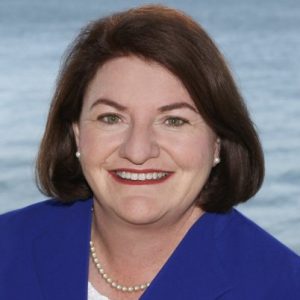 Prior to being elected into the California State Assembly, Toni Atkins received a bachelor’s degree in political science from Emory and Henry College and completed a senior executive program from Harvard University’s John F. Kennedy School of Government. She served on San Diego’s city council between 2000 and 2008 before going on to represent District 78 as a Democrat in the State Assembly, starting in 2010. While in office, Atkins served as Majority Whip from 2011 to 2014 before being unanimously elected as Speaker of the Assembly in 2014, a position she held for three months before being replaced by the current Speaker, Anthony Rendon (D-San Diego). After nearly six years in the California State Assembly, Atkins is now running for California State Senate in District 39. In the primary elections held in June, Atkins won the majority with 66 percent of the vote compared to her current opponent, Republican John Renison, who received the second highest vote count at 18 percent.
Prior to being elected into the California State Assembly, Toni Atkins received a bachelor’s degree in political science from Emory and Henry College and completed a senior executive program from Harvard University’s John F. Kennedy School of Government. She served on San Diego’s city council between 2000 and 2008 before going on to represent District 78 as a Democrat in the State Assembly, starting in 2010. While in office, Atkins served as Majority Whip from 2011 to 2014 before being unanimously elected as Speaker of the Assembly in 2014, a position she held for three months before being replaced by the current Speaker, Anthony Rendon (D-San Diego). After nearly six years in the California State Assembly, Atkins is now running for California State Senate in District 39. In the primary elections held in June, Atkins won the majority with 66 percent of the vote compared to her current opponent, Republican John Renison, who received the second highest vote count at 18 percent.
According to her official website, Atkins’ platform covers issues ranging from education and healthcare to the rights of women, veterans and the LGBT community. Her education platform focuses on increasing the general fund for California education to a record high of $14.8 billion, passing the Dream Act, forming a committee to address sexual assault on college campuses and increasing enrollment within the UC and CSU systems. As the first openly gay California Speaker of the Assembly, Atkins seeks to support the LGBT community by creating transgender options for official California records and adding language within anti-discrimination laws to reflect all gender identities. Her platform for women’s rights mainly addresses increased support for victims of domestic abuse and calls for an increase in funding for child care services in San Diego. Atkins’ healthcare position centers around support for HIV-positive patients and expanding access to MediCal. She helped lock down an extra $3 million in annual funding for the Country Veterans Services and has secured millions in funding for San Diego’s homeless, veteran and low-income populations. Atkins also seeks to further boost San Diego’s economy, having already helped create a fisherman’s market in the area and pledging to support local businesses. Finally, Atkins is endorsed by the California League of Conservation Voters for her work in promoting Southern California water conservation projects.
Several aspects of her platform directly affect students at UCSD. Atkins seeks to increase enrollment in the UC system, a proposal that will pump more students into an already overflowing school system. Although Atkins is pushing for a record $14.8 billion in state education funding, she does not specify how much the UC system would obtain. She instead pledged $12 million to San Diego State University and $7.4 million to the San Marcos Unified School District. She does describe a general fund of $62.3 million to promote an increase in the number of full-time faculty at California colleges, specifically allocating $2.6 million to the San Diego Community College district. On the other hand, Atkins fiercely defends LGBT students’ rights, pushing schools to establish gender-neutral bathrooms for transgender students and to allocate funding for gender-identity education.
John Renison
 John Renison is the founder and CEO of Piggyback Technologies, Inc., a delivery service created in 2014 that allows e-retailers to ship and deliver their products to customers within 24 hours. He is also the current CEO of Britton Customhouse Brokers, a position he has held since 1995. Although he has not had a formal collegiate education, he has completed certification from Boston University’s Legal Studies program and a negotiation program run by the Tufts-MIT-Harvard consortium. His experience in running small businesses feeds directly into his platform as the Republican candidate for State Senator of District 39.
John Renison is the founder and CEO of Piggyback Technologies, Inc., a delivery service created in 2014 that allows e-retailers to ship and deliver their products to customers within 24 hours. He is also the current CEO of Britton Customhouse Brokers, a position he has held since 1995. Although he has not had a formal collegiate education, he has completed certification from Boston University’s Legal Studies program and a negotiation program run by the Tufts-MIT-Harvard consortium. His experience in running small businesses feeds directly into his platform as the Republican candidate for State Senator of District 39.
Although his official website omits specific language dictating his policy proposals, Renison’s platform boasts three main points: maintaining public safety by keeping criminals in prison, reducing taxes to support growing business and fostering the growth of startups and small businesses.
Students interested in entrepreneurship may be attracted to his plans to cut taxes and promote startups. However, he does not specify his stances on social issues such as LGBT rights, women’s rights, etc. He also has not discussed his stance on education, but he does emphasize his reputation as a community-oriented figure.
— Tia Ikemoto, Associate Features Editor
House of Representatives: 49th District
Doug Applegate
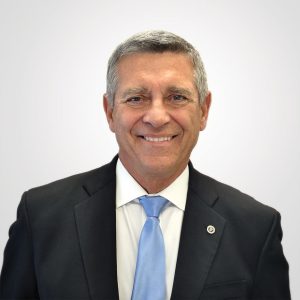 Doug Applegate is the Democratic newcomer to the District 49 race, challenging Republican incumbent Darrell Issa. Applegate was the first in his family to graduate from college, getting both a B.A. in economics and a law degree from the University of Arizona. Applegate served in the Marine Corps for 32 years, at one point attaining the rank of colonel. After leaving the Marine Corps in 2006, Applegate became a civilian trial attorney.
Doug Applegate is the Democratic newcomer to the District 49 race, challenging Republican incumbent Darrell Issa. Applegate was the first in his family to graduate from college, getting both a B.A. in economics and a law degree from the University of Arizona. Applegate served in the Marine Corps for 32 years, at one point attaining the rank of colonel. After leaving the Marine Corps in 2006, Applegate became a civilian trial attorney.
As a retired marine colonel, a major focus of Applegate’s platform is improving veteran affairs, specifically by creating a better healthcare system and more job opportunities for veterans. Applegate has a fairly progressive platform, arguing to defend Social Security and Medicare, oppose the Trans Pacific Partnership, support the 2013 immigration bill, fix the Affordable Care Act and focus more on developing renewable energy. In addition, Applegate plans to take action on women’s issues and the issues of the LGBTQ community. He acknowledges that the LGBTQ community still faces much systemic discrimination and plans to support legislation to combat it. When it comes to women’s rights, he is pro-choice and promises to fight for equal pay for women. As both a military veteran and a lawyer, Applegate assures that he can use his expertise to both reform the criminal justice system and help create an effective foreign policy, advocating for more diplomacy and fewer troops on the ground when possible.
Students voting in the 49th District might like Applegate because of his aforementioned support for women and the LGBTQ community. He also believes we should move toward renewable energy, citing the military’s plan to go 50 percent renewable by 2050 as an example for the rest of the U.S. to adopt.
Darrell Issa
 Republican Darrell Issa has been the District 49 congressman since 2000. Issa is a self-made millionaire and is commonly referred to as the richest man in Congress. Before becoming a businessman, Issa was enlisted in the U.S. Army and reached the rank of captain before the end of his service. Afterward, Issa was the CEO of Directed Electronics, a company he founded and built to become one of the largest manufacturers of vehicle anti-theft devices in the country. Recently, Issa has gained notoriety for his vocal support of his party’s presidential candidate, Donald Trump.
Republican Darrell Issa has been the District 49 congressman since 2000. Issa is a self-made millionaire and is commonly referred to as the richest man in Congress. Before becoming a businessman, Issa was enlisted in the U.S. Army and reached the rank of captain before the end of his service. Afterward, Issa was the CEO of Directed Electronics, a company he founded and built to become one of the largest manufacturers of vehicle anti-theft devices in the country. Recently, Issa has gained notoriety for his vocal support of his party’s presidential candidate, Donald Trump.
When it comes to policy, Trump and Issa have a lot in common. Overall, Issa wants less government regulation so that businesses can have more freedom to grow. He advocates for fewer taxes for small businesses and strongly opposes the Affordable Care Act. Issa doesn’t place a lot of importance on renewable energy and instead wants an “all of the above” energy solution, in which fossil fuels continue to be exploited while renewable resources are developed on the side. Issa supported the Keystone XL Pipeline and doesn’t believe the government has the right to dictate the energy marketplace. In regards to technology, Issa was in favor of keeping the internet open but was also against the Stop Online Piracy Act. Issa also plans to support military veterans by addressing the veteran claims backlog, providing more military autism coverage and helping create the VA Aspire Center in Old Town San Diego — a site that would be dedicated to helping veterans reintegrate into civilian life.
Issa has consistently opposed President Obama’s policies while also heading congressional committees tasked with investigating Benghazi and the president’s birth certificate.
— Ayat Amin, Staff Writer
House of Representatives: 52nd District
Scott Peters
 Running for a third term, Scott Peters is defending his position as a Democratic congressman in a historically Republican district. Originally from Ohio, Peters spent his formative years in Michigan and New Jersey before going on to receive a Bachelor of Arts from Duke University and a law degree from New York University. In 1989, Peters and his wife moved to San Diego, where he found work at a large law firm. He continued his career as a practicing lawyer until 2000, punctuated by a stint as San Diego County Counsel from 1991 to 1996. His career in politics began in 2000, when he was elected to the San Diego City Council. He served as a councilman until 2008, and became San Diego’s first city council president. Four years later, in 2012, he successfully ran for Congress against the Republican incumbent, Brian Bilbray, making him the first Democrat to represent the 52nd Congressional District since its creation in 1993.
Running for a third term, Scott Peters is defending his position as a Democratic congressman in a historically Republican district. Originally from Ohio, Peters spent his formative years in Michigan and New Jersey before going on to receive a Bachelor of Arts from Duke University and a law degree from New York University. In 1989, Peters and his wife moved to San Diego, where he found work at a large law firm. He continued his career as a practicing lawyer until 2000, punctuated by a stint as San Diego County Counsel from 1991 to 1996. His career in politics began in 2000, when he was elected to the San Diego City Council. He served as a councilman until 2008, and became San Diego’s first city council president. Four years later, in 2012, he successfully ran for Congress against the Republican incumbent, Brian Bilbray, making him the first Democrat to represent the 52nd Congressional District since its creation in 1993.
Peters’ platform largely adheres to that of a center-left Democrat, although he does have a few issues that lean more progressive. Namely, he is passionate about environmental policy, having served as the chair of the Climate Task Force for the Sustainable Energy and Environment Coalition. His energy policy focuses on creating more jobs in clean sources of energy and alternative fuels, a field he believes will lead the United States to energy independence and, in turn, better the environment. Furthermore, Peters has stressed the importance of federal investment in research and technology, a prescient issue in San Diego’s largely tech-driven economy. This past year, he supported the 21st Century Cures Act, which increased funding for the National Institute of Health’s scientific research by $8 billion.
Representing a district with a strong military presence due to the San Diego Naval Base, Peters has also made substantial promises to veterans in his platform. In addition to voting to increase benefits for veterans, he has introduced bills that would require the Department of Veterans Affairs to hire more therapists and provide affordable housing for elderly veterans.
Particularly relevant to students, Peters has consistently supported measures to reduce student debt. After helping pass a bill to support lower interest rates on student loans, he recently introduced a bill called the Student Loan Repayment Assistance Act, which would allow employers to match student loan payments up to $6,000 a year without being taxable for the employee.
Denise Gitsham
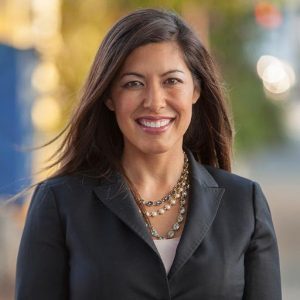 Born to a Taiwanese mother and a Canadian father, Denise Gitsham breaks sharply with the traditional “WASPy” image that surrounds the Republican party — a fact in which she takes great pride. In 2000, to help then-presidential candidate George W. Bush reach out to Hispanic voters, Gitsham worked as a “Hispanic Coalitions Coordinator,” joking that she fit the role because she’s “just ethnically ambiguous enough to pass as almost anything.”
Born to a Taiwanese mother and a Canadian father, Denise Gitsham breaks sharply with the traditional “WASPy” image that surrounds the Republican party — a fact in which she takes great pride. In 2000, to help then-presidential candidate George W. Bush reach out to Hispanic voters, Gitsham worked as a “Hispanic Coalitions Coordinator,” joking that she fit the role because she’s “just ethnically ambiguous enough to pass as almost anything.”
Since working on the Bush campaign in 2000, Gitsham has had a varied career: She worked as an associate director of the Office of Intergovernmental Affairs and public liaison in the Justice Department from 2004 to 2005. Then, after receiving a law degree from Georgetown University, she worked at a law firm from 2008 to 2009. More recently, she has been involved in several small business ventures.
Having never held an elected position before, Gitsham does not have any legislative successes to advertise to voters. Instead, she sells herself as an entrepreneur and innovator, drawing on her experience working for a renewable energy startup and owning a small business. Naturally, the issues she supports the most are related to the economic environment in San Diego. In order to ensure the United States’ energy independence, she advocates an “all of the above” energy policy, encouraging development of renewable sources of energy while still exploiting fossil fuels, such as oil and natural gas. While she seems more progressive than most Republicans in acknowledging lowering carbon emissions as a goal, she is not as critical of oil companies as Peters. In terms of national security, she has a tendency of being hawkish, calling for increased investment in the defense industry and stating that “America’s military is the greatest force for good and peace in the world,” though she doesn’t spell out any specific foreign policy plans.
Of interest to students, she does call for increased investment in STEM education. She also wants to improve the business environment and encourage innovation in the San Diego area by cutting down on taxes and regulations, a standard Republican economic policy.
— Oliver Kelton, Features Editor
United States Senate: California
Kamala Harris
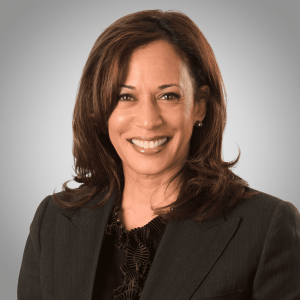 At this point, the race for one of California’s Senate seats is not much of a race at all, with Harris carrying a 17 percent lead in the most recent USC Dornsife/LA Times poll. Still, UCSD students should be aware of both candidates’ backgrounds and platforms. Kamala Harris has been the attorney general of California since 2011; she previously worked as a district attorney for Alameda County, where she focused on child sexual assault cases, and later as a city attorney for San Francisco.
At this point, the race for one of California’s Senate seats is not much of a race at all, with Harris carrying a 17 percent lead in the most recent USC Dornsife/LA Times poll. Still, UCSD students should be aware of both candidates’ backgrounds and platforms. Kamala Harris has been the attorney general of California since 2011; she previously worked as a district attorney for Alameda County, where she focused on child sexual assault cases, and later as a city attorney for San Francisco.
Even though both are Democrats, Harris and Sanchez’s priorities and goals show clear differences. In a Q&A with the Los Angeles Times, when each of the candidates was asked what legislation they intended to file in their first years, Harris stated that she hopes to make community college free for those whose income is less than $140,000 and also to combat greed-driven student loan companies.
In addition, Harris is also focusing on immigration reform. According to her website, she supports passing the federal DREAM Act, which would allow veterans and undocumented students who pursue higher education to have a chance at citizenship. It would be similar to the California DREAM Act, also supported by Harris, which gave undocumented students access to financial aid at public institutions.
Loretta Sanchez
 Loretta Sanchez has had a different rise to politics. After receiving her MBA, she worked as a financial analyst for over a decade. Since 1997, she has served as a U.S. representative for California’s 46th and 47th districts in Orange County and currently serves on the Armed Services and Homeland Security Committees.
Loretta Sanchez has had a different rise to politics. After receiving her MBA, she worked as a financial analyst for over a decade. Since 1997, she has served as a U.S. representative for California’s 46th and 47th districts in Orange County and currently serves on the Armed Services and Homeland Security Committees.
When responding to the same Q&A as Harris with the L.A. Times, Sanchez, had quite a different response to legislation she hopes to work on: immigration reform. She stated that “immigration reform must include a broad, inclusive roadmap to citizenship; improvement of existing temporary worker programs; a secure, effective authorization mechanism that treats workers fairly; and rational, humane border control measures.” While Sanchez and Harris have similar ideologies and wouldn’t necessarily disagree with this, it mostly comes down to whose priorities align with the state’s needs.
In addition to immigration reform, Sanchez also is focused on enhancing the state’s infrastructure and water supply. She has successfully developed a project to recycle 90 percent of the water in the district she represents and is prepared to initiate similar projects if she is elected.
Though Harris hopes to make community college free for families whose incomes are below $140,000, Sanchez has a bit of a different plan: She wants to lower the price of community college tuition to $5 per unit. Like Harris, Sanchez is also an advocate for increasing the award amount for Federal Pell Grants to meet schools’ increasing tuitions.
— Rosina Garcia, Staff Writer
President of the United States
Hillary Clinton
 Despite possessing one of the most stellar resumes in all of Washington, D.C., Hillary Clinton has faced as tumultuous a path as one could imagine to the Democratic nomination and a potential presidency.
Despite possessing one of the most stellar resumes in all of Washington, D.C., Hillary Clinton has faced as tumultuous a path as one could imagine to the Democratic nomination and a potential presidency.
After surrendering the Democratic nomination to then-Senator Barack Obama in 2008, and then serving four years as his secretary of state, there weren’t many who doubted that Clinton would be the 2016 Democratic nominee. But with her political integrity, her commitment to the public good and her status as a liberal being questioned by an insurgent Bernie Sanders, Clinton had to battle hard once again to secure her party’s presidential nomination.
Following the primary’s conclusion, Clinton announced a plan that would grant free tuition at public colleges to students whose families earn less than $85,000 per year — a threshold that would increase to $125,000 by 2021. Prior to this, she had already made promises to expand the Affordable Care Act, raise taxes on the wealthiest Americans, and guarantee paid family leave for both new mothers and fathers. In spite of such progressive proposals, the debate regarding whether Clinton is a true liberal or a Republican dressed in blue has yet to cease.
Not helping her case, Clinton selected Sen. Tim Kaine (D-Va.) to be her running mate, which many progressives see as a subpar, moderate choice compared to the likes of Sanders or Elizabeth Warren. Others, however, praise Kaine for his tendency towards the political center as it allows him to work across the political spectrum.
Certainly, many citizens will dock Clinton for her email scandal, as well as her extensive ties to Wall Street and the military-industrial complex, and rightfully so. However, she has shown herself to be pragmatic and efficient, even if the means by which she does so seem fishy.
Donald Trump
 Before 2016, most only recognized Donald Trump as a titan of the entertainment industry and a self-indulgent, gold-loving businessman. Since then, however, Trump’s political prospects have risen astronomically — due to a voter base that is 90 percent white and and 58 percent male — to the point that he is now 270 electoral votes away from holding the nation’s highest office.
Before 2016, most only recognized Donald Trump as a titan of the entertainment industry and a self-indulgent, gold-loving businessman. Since then, however, Trump’s political prospects have risen astronomically — due to a voter base that is 90 percent white and and 58 percent male — to the point that he is now 270 electoral votes away from holding the nation’s highest office.
Beyond proposing to build a Mexico-financed wall along the U.S.-Mexico border and indefinitely ban all Muslims from entering the country, Trump has relied mainly on his opposition to the corrupt political system to boost and sustain his popularity. However, between 1989 and 2015, Trump contributed over $1.84 million to political campaigns, more than a third of which went to Democrats, including Clinton.
With regard to education, Trump declared that he would either cut or drastically reduce the size of the Department of Education. On the bright side, he wrote in 2015 that the federal government should not profit from student loans and unofficially proposed to refinance student loans after 15 years of successful payments.
Some, including Trump himself, like to draw parallels between him and Bernie Sanders for their anti-establishment rhetoric, views against free trade and an apolitical tendency toward truth. While he has indeed denounced the political process and current free trade deals, the claim that Trump is more honest than his opponent is unfounded. PolitiFact deems only 30 percent of his statements at least “Half True” — the other 70 percent are rated “Mostly False” or worse — while his opponent, who has been commonly criticized for her alleged dishonesty, has 74 percent of her statements rated as at least “Half True.”
If Trump were to win the election, Indiana Gov. Mike Pence would become the country’s vice president. Pence is known as a firm conservative who rejects a woman’s right to choose, favors allowing job discrimination based on sexual orientation and, unlike his running mate, favors free-trade deals. The two together make up as bombastic and backwards-thinking a ticket as any American could ask for.
— Jacky To, Managing Editor








Will • Nov 7, 2016 at 11:15 pm
instead of doing a quick “copy and paste” from google images of a guy with the name John Renison, consider being more attentive to details. Just to make it easy for you, here is a real picture of the candidate.
https://coronadotimes.com/wp-content/uploads/2016/05/John-Renison.jpg